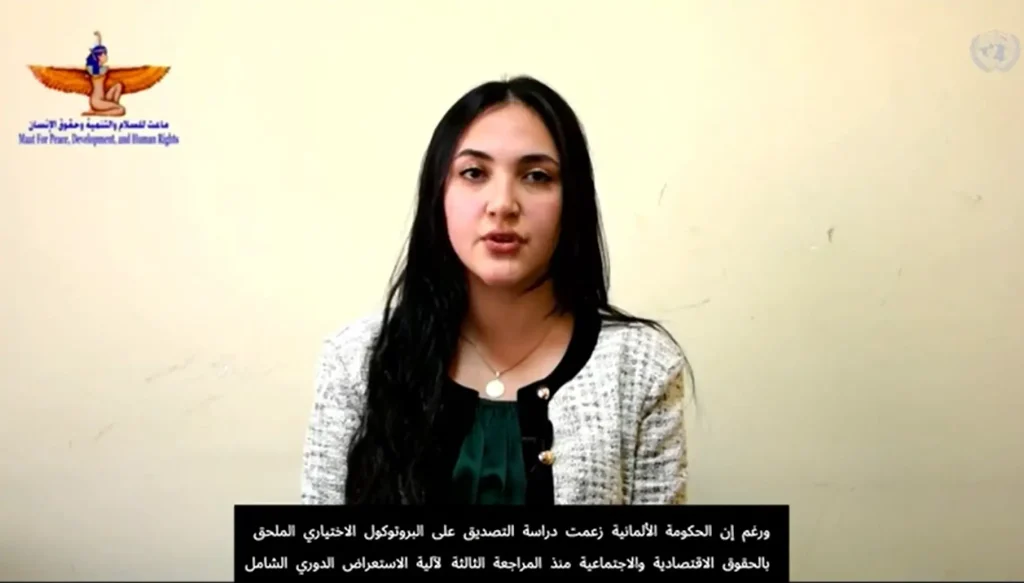Aqil: The Israeli occupation is preventing the Palestinians from exploiting their resources
Samira Abe: Israel is violating international laws and agreements
Maat Foundation for Peace, Development and Human Rights, in cooperation with Partners for Transparency, made an intervention yesterday, during the discussion of Chapter Seven of the work of the Human Rights Council, in which it criticized the Israeli policies that work to destroy the vital infrastructure and infrastructure of the Palestinians, including pipelines for drinking water and sewage networks. Health and electricity networks, and the demolition of water wells, which constitute a serious threat to the right to life. And on the sidelines of the 42nd session of the United Nations Human Rights Council in Geneva, which was held this September.
Ayman Aqil, head of the Maat Foundation, said that since Israel’s occupation of the Palestinian lands, the right to life of the Palestinian people has been violated through its policies and practices in the exploitation of water resources. And the denial of the Palestinians' right to have access to drinking water and the extraction of other natural resources, and the inability of the Palestinians to access their own water resources in the West Bank and Gaza Strip. Water has become a powerful symbol of the systematic violation of human rights in the occupied Palestinian territories.
Aqil added that more than 96% of coastal groundwater in Gaza has become unfit for human use, and it is the main source of water for the residents of Gaza, and that the natural and mineral wealth from the Dead Sea, part of which is located in the Occupied Palestinian Territory, is being used by Israel for its own benefit while the Palestinians are denied Access to those resources.
For her part, Samira Abe, who delivered the intervention on behalf of the two organizations, said that the occupation forces violate all international laws, agreements and UN resolutions, and are seeking to comprehensively destroy natural resources in Palestine, especially water sources, as the West Bank sits on three water basins that constitute the main source of water. In Palestine, however, the Israeli occupation controls it and requires Palestinian citizens to consume only 15% percent of the total water reserve, including the springs inside the Palestinian territories. In addition to the draining and seizure of more than 300 natural springs and more than 500 wells, and what was isolated from underground wells behind the Apartheid Wall.
Finally, the intervention called on the Israeli authorities, as the occupying power, to stop exploiting the natural resources in the Occupied Palestinian Territories, destroying them or causing them to be lost or depleted, or endangered, with the need to recognize the right of the Palestinian people to demand compensation for exploiting their natural resources.











